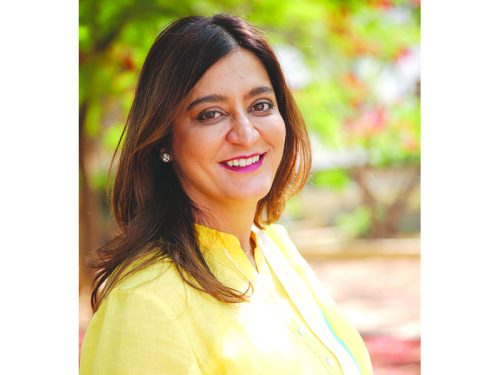No products in the cart.
Modi Government Education Report Card: Nooraine Fazal
In this General Election-eve story, we assess the track record of the Modi government — the first non-Congress government to have completed ten years in office in independent India — in early childhood, primary-secondary, skilling and higher education writes Summiya Yasmeen

Prime Minister Narendra Modi: eventful decade for Indian education
 Significant achievements & notable challenges
Significant achievements & notable challenges
Nooraine Fazal is co-founder and managing trustee of the CISCE (Delhi) and Cambridge International (UK)-affiliated Inventure Academy, Whitefield (estb.2005) and Inventure, Yeshwanthpur (estb.2024) — both in Bangalore.
What are the biggest education achievements and failures of the BJP government during the past decade?
Achievements
- Introduction of NEP 2020 is a significant achievement with the potential to transform the education system comprehensively by shifting focus to holistic development, flexible learning, and assessment reforms.
- The establishment of new universities and colleges, including in the North-east and Ladakh, has expanded access to higher education.
- There has been a notable increase in female enrolment — 28 percent — in higher education, signifying progress towards gender equality in education.
- Permission to foreign universities to set up campuses in India has the potential to enhance the quality and diversity of higher education.
- The establishment of a National Testing Agency (NTA) has streamlined national competitive entrance examinations.
Failures
- Despite ambitious targets set by NEP 2020, budgetary allocation for education has remained stagnant, falling well short of the recommended 6 percent of GDP. Indeed, it has decreased from 3.32 percent of GDP in 2019-2020 to 2.50 percent in 2023-24.
- Vacancies in faculty and leadership positions in Central government institutions have affected teaching quality. Nearly 50 institutes of national importance don’t have chairpersons, with ten institutions without a permanent chairperson for eight years.
- Failure to establish key bodies such as the National Research Foundation and the Higher Education Commission of India reflects lack of commitment to systemic reform and innovation.
- NTA has faced criticism for technical glitches, unfair questions and allegations of mismanagement, raising concerns about the reliability and integrity of centralized examinations.
While there have been significant initiatives and achievements in the education sector under the BJP government, there are also notable challenges and areas that require improvement.
What should be the Top 3 education priorities of the new post-2024 government?
Addressing learning loss due to the pandemic. Learning loss of children during the pandemic has been significant. The new government must prioritise initiatives aimed at remedying learning gaps through targeted interventions.
Improving the quality of higher education institutions. Despite expansion of higher education institutions in terms of number, there are concerns regarding the quality and effectiveness of these institutions. The new government should focus on enhancing the quality of higher education by stepping up investment in faculty development, infrastructure upgradation and curriculum modernisation.
Ensure equitable access to quality education. The new government must accord priority to initiatives promoting equitable access to education for all segments of society. This requires improving access to schools and colleges in remote areas, providing financial assistance and scholarships to economically disadvantaged students, and removing barriers to education confronting marginalised groups, including girls, children with disability, and from rural backgrounds.
















Add comment